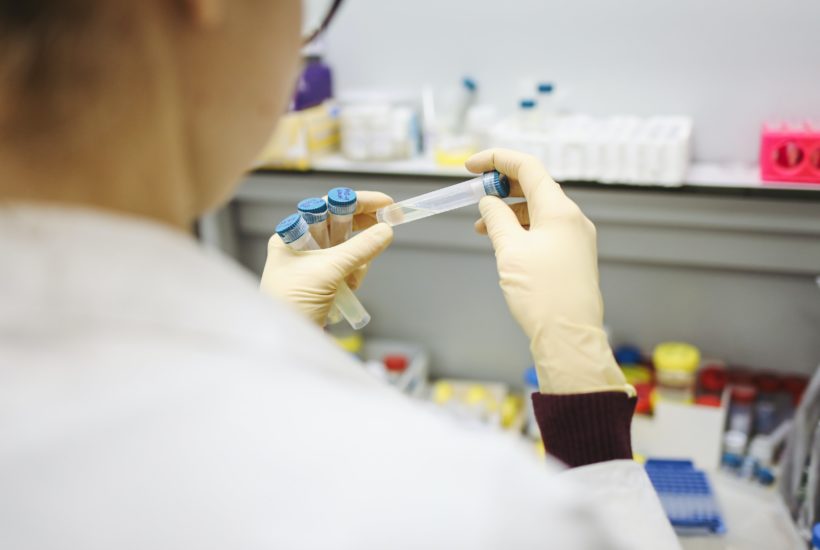Biotech
Moderna with its COVID-19 vaccine is representative of the innovative power of the entire biotech industry
The US company Moderna with its mRNA-based COVID-19 vaccine is currently the best-known example of how biotech companies are making progress for society. In addition to this promising mRNA technology, the agenda at BB Biotech’s BioDay, which focused on promising industry trends for the future, included molecular design and the CRISPR approach.

It took less than 11 months from the deciphering of the genetic code of the SARS-CoV-2 virus to the regulatory filing for the first two vaccines designed to provide global containment of the corona pandemic. “The mRNA technology used by Moderna is a good example of how innovative technologies from the laboratories of biotech companies are driving medical progress,” said Daniel Koller, Ph.D., head of the investment team.
Find out more details about Moderna’s vaccine against the new coronavirus and read the most important business headlines with our companion app Born2Invest.
mRNA technology as preferred method for future vaccine development
“Our vision is to develop a new generation of drugs,” explained Stéphane Bancel, CEO of Moderna, in his presentation at BioDay. The approval of the mRNA-1273 vaccine against COVID-19 is expected to become a door opener for other applications with mRNA vaccines. In clinical trials, the vaccine showed 94.1% efficacy across all age groups.
On December 17th, the U.S. Food and Drug Administration’s advisory panel will meet. 24 to 72 hours after its opinion, the decision will be made. Moderna will market the product on its own. The company has set up a logistical infrastructure through which international shipments will start within 24 hours of approval. US approval is expected before the end of the year. The approval decision within the EU is expected in the second week of January. The COVID-19 vaccine is produced by the Swiss company Lonza. Up to 20 million doses may still be produced in 2020 and one billion doses in 2021.
Bancel is convinced that mRNA technology will establish itself as the preferred method for vaccine development in the future, once the first product has been approved, due to its many advantages. A key factor in this, he said, is the higher clinical likelihood of success. Because human mRNA has the same chemical structure in all molecules, and mRNA-based active ingredients differ only in the coded genetic information, diverse active ingredients can be developed from it in shorter periods of time. In the case of the SARS-CoV-2 virus, Moderna needed only a few days to select the sequence for the vaccine from the gene sequence of the virus. Another advantage of the mRNA mechanism is that all vaccines are packaged in the same molecular envelopes, which facilitates the production of large volumes. In addition, compared to the competitor product from Biontech/Pfizer, the vaccine can be stored for a period of six months at minus 20 degrees, up to a maximum of 30 days at refrigerator temperatures of six to eight degrees or at room temperatures for six hours.
By investing in robotics, IT and production processes, Bancel says Moderna has set the stage for scalability for all clinical products the biotech company will launch in the future. The original timeline, which had envisioned this development by 2023, has been shortened by three years due to the development and funding of the COVID-19 vaccine, he said. Currently, Moderna has 13 products in clinical development, including six vaccines against cancer and seven against various infectious diseases. BB Biotech had already established an initial position in the company in 2018, before the IPO.
Molecular design on screen
Another innovative therapeutic approach coming out of biotech labs is called molecular design. Relay Therapeutics, which went public in July 2020, is a leader in rational drug design. The process involves analyzing the molecular movements of protein molecules to understand their role in the development of a disease. Instead of conventional three-dimensional crystal structures, Relay uses a computer-based platform.
Using machine learning, chemical and biophysical processes that take place in milliseconds are digitally simulated and visualized. This allows molecules that could be drug candidates to be identified in a more time- and cost-saving manner. At the same time, the molecule design is more precise in its effect profile, because properties such as pharmacodynamics, effective dose, bioavailability or toxicity can be determined far more precisely. Relay Therapeutics is using this technology to develop drugs in tablet form as cancer therapies. The most advanced compound, RLY-1971, from the selective SHP2 inhibitor class, is being tested primarily in combination with other therapies and is in Phase I clinical trials. Relay will present first clinical results for two products in 2021.
Using CRISPR to permanently eliminate gene defects
The Nobel Prize in Chemistry awarded in October 2020 to Emmanuelle Charpentier and Jennifer A. Doudna underscores the importance of genome editing as a disruptive technology for future drug development. This molecular biology technology involves making targeted changes in the human genome to achieve a permanent cure for disease. Genome editing has already been successfully applied in cell-based cancer therapies. CRISPR Therapeutics, on the other hand, is a leader in ex vivo applications of the CRISPR/Cas9 approach. This involves modifying cells taken from patients in the laboratory and then re-injecting them. The novelty of this approach is that fragments of human DNA, thought to be genetic triggers of disease, are excised and repaired with genetic replacements. The CRISPR/Cas9 enzyme sets in motion the genetic repair mechanism that every cell in the body possesses.
BB Biotech has been invested in CRISPR Therapeutics since Q1 2019. The company is developing two clinical programs against beta-thalassemia and sickle cell anemia in collaboration with Vertex Pharma, a core position in the investment portfolio. These are two genetic disorders in the formation of blood cells with severe disease progression. The genetically modified stem cells that were re-administered to the patients resulted in a complete cure. In addition to these two collaborative programs, CRISPR Therapeutics is developing three cell-based immuno-oncology projects on its own.
__
(Featured image by Polina Tankilevitch via Pexels)
DISCLAIMER: This article was written by a third party contributor and does not reflect the opinion of Born2Invest, its management, staff or its associates. Please review our disclaimer for more information.
This article may include forward-looking statements. These forward-looking statements generally are identified by the words “believe,” “project,” “estimate,” “become,” “plan,” “will,” and similar expressions. These forward-looking statements involve known and unknown risks as well as uncertainties, including those discussed in the following cautionary statements and elsewhere in this article and on this site. Although the Company may believe that its expectations are based on reasonable assumptions, the actual results that the Company may achieve may differ materially from any forward-looking statements, which reflect the opinions of the management of the Company only as of the date hereof. Additionally, please make sure to read these important disclosures.
First published in DGAP.DE, a third-party contributor translated and adapted the article from the original. In case of discrepancy, the original will prevail.
Although we made reasonable efforts to provide accurate translations, some parts may be incorrect. Born2Invest assumes no responsibility for errors, omissions or ambiguities in the translations provided on this website. Any person or entity relying on translated content does so at their own risk. Born2Invest is not responsible for losses caused by such reliance on the accuracy or reliability of translated information. If you wish to report an error or inaccuracy in the translation, we encourage you to contact us.

-

 Fintech6 days ago
Fintech6 days agoRipple and Mercado Bitcoin Expand RWA Tokenization on XRPL
-

 Crypto2 weeks ago
Crypto2 weeks agoBitcoin Traders on DEXs Brace for Downturn Despite Price Rally
-

 Impact Investing3 days ago
Impact Investing3 days agoItaly’s Electric Cars Market Rebounds, but 2030 Targets Remain Elusive
-

 Crowdfunding2 weeks ago
Crowdfunding2 weeks agoFrom Confiscation to Cooperation: Funding Casa de la PAZ’s Social Transformation

























